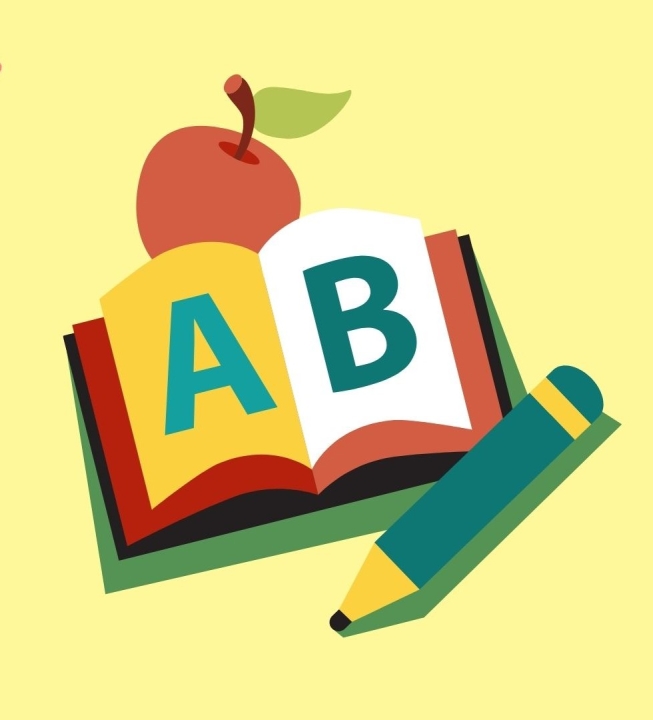These bats learn to eavesdrop—in order to survive
| English | Tiếng Việt |
|---|---|
| Bats fly at night. | Dơi bay vào ban đêm. |
| They use echolocation to find food. | Chúng sử dụng định vị bằng tiếng vang để tìm thức ăn. |
| Frogs make calls to find mates. | Ếch phát ra tiếng kêu để tìm bạn tình. |
| Some bats listen to these calls to find frogs. | Một số dơi lắng nghe những tiếng kêu này để tìm ếch. |
| Fringe-lipped bats eat frogs. | Dơi môi tua ăn ếch. |
| They can tell which frogs are safe to eat. | Chúng có thể phân biệt ếch nào an toàn để ăn. |
| Young bats learn by watching older bats. | Dơi non học bằng cách quan sát dơi trưởng thành. |
| They learn which frog calls mean good food. | Chúng học tiếng kêu của ếch nào là thức ăn tốt. |
| Some frogs are poisonous. | Một số ếch có độc. |
| Bats avoid poisonous frogs. | Dơi tránh ếch độc. |
| Bats use their ears to listen. | Dơi sử dụng tai để lắng nghe. |
| They also use their eyes to see. | Chúng cũng sử dụng mắt để nhìn. |
| Bats live in forests. | Dơi sống trong rừng. |
| Frogs live near water. | Ếch sống gần nước. |
| At night, the forest is full of frog calls. | Vào ban đêm, rừng đầy tiếng kêu của ếch. |
| Bats fly quietly to catch frogs. | Dơi bay lặng lẽ để bắt ếch. |
| They use sound to find frogs. | Chúng sử dụng âm thanh để tìm ếch. |
| Bats are smart animals. | Dơi là loài vật thông minh. |
| They learn from their mothers. | Chúng học từ mẹ của chúng. |
| Bats remember which frogs are good to eat. | Dơi nhớ ếch nào là tốt để ăn. |
| Bats and frogs share the forest. | Dơi và ếch cùng sống trong rừng. |
| Bats help keep the number of frogs balanced. | Dơi giúp giữ số lượng ếch cân bằng. |
| Scientists study bats and frogs. | Nhà khoa học nghiên cứu dơi và ếch. |
| They learn how bats find food. | Họ tìm hiểu cách dơi tìm thức ăn. |
| Nature is full of interesting things. | Thiên nhiên đầy những điều thú vị. |
Vocabulary List
| Word | Part of Speech | Phonemic Symbol | Vietnamese Meaning | Example Sentence |
|---|---|---|---|---|
| bat | noun | /bæt/ | dơi | The bat flies at night. |
| frog | noun | /frɒɡ/ | ếch | A frog jumps into the water. |
| call | noun/verb | /kɔːl/ | tiếng kêu, kêu | The frog makes a loud call. |
| echolocation | noun | /ˌekəʊləʊˈkeɪʃn/ | định vị bằng tiếng vang | Bats use echolocation to find food. |
| fringe-lipped bat | noun | /frɪndʒ-lɪpt bæt/ | dơi môi tua | A fringe-lipped bat eats frogs. |
| poisonous | adjective | /ˈpɔɪzənəs/ | độc | That frog is poisonous. |
| ear | noun | /ɪə(r)/ | tai | Bats listen with their ears. |
| eye | noun | /aɪ/ | mắt | The bat sees with its eyes. |
| forest | noun | /ˈfɒrɪst/ | rừng | Frogs live in the forest. |
| water | noun | /ˈwɔːtə(r)/ | nước | Frogs jump into the water. |
| sound | noun | /saʊnd/ | âm thanh | Bats hear the sound of frogs. |
| mother | noun | /ˈmʌðə(r)/ | mẹ | The young bat follows its mother. |
| scientist | noun | /ˈsaɪəntɪst/ | nhà khoa học | A scientist studies frogs. |
| nature | noun | /ˈneɪtʃə(r)/ | thiên nhiên | Nature is full of animals. |
| night | noun | /naɪt/ | ban đêm | Bats come out at night. |
| food | noun | /fuːd/ | thức ăn | Frogs are food for bats. |
| learn | verb | /lɜːn/ | học | Bats learn from other bats. |
| young | adjective | /jʌŋ/ | non, trẻ | The young bat is small. |
| old | adjective | /əʊld/ | già | The old bat teaches the young. |
| safe | adjective | /seɪf/ | an toàn | Some frogs are safe to eat. |
| dangerous | adjective | /ˈdeɪndʒərəs/ | nguy hiểm | Poisonous frogs are dangerous. |
| catch | verb | /kætʃ/ | bắt | The bat tries to catch the frog. |
| fly | verb | /flaɪ/ | bay | Bats fly in the sky. |
| see | verb | /siː/ | nhìn | The bat can see the frog. |
| listen | verb | /ˈlɪsn/ | lắng nghe | Bats listen to frog calls. |
Vocabulary Review Tasks
Task 1: Fill in the Blank (Reviewing items 1–5)
Fill in the blanks with the correct vocabulary word.
-
A ______ uses echolocation to find its way in the dark.
-
The ______ makes a noise to attract a mate.
-
The bat follows the frog’s ______ to locate it.
-
______ helps animals "see" with sound.
-
The - ______ eats frogs by listening to their calls.
Task 2: Unscramble the Words (Reviewing items 6–10)
Unscramble the letters to form a vocabulary word.
-
OUIPOSNOIS = __________
-
RAE = __________
-
EYE = __________
-
ROTSEF = __________
-
RETWA = __________
Task 3: Synonym Matching (Reviewing items 11–15)
Match each word to its closest synonym.
| Vocabulary Word | Synonym Letter |
|---|---|
| 11. sound | a. mom |
| 12. mother | b. expert |
| 13. scientist | c. audio |
| 14. nature | d. environment |
| 15. night | e. dark hours |
Task 4: Gap Fill – Paragraph Format (Reviewing items 16–20)
Fill in the blanks with the correct vocabulary word.
The baby bat needed ______ to grow strong. It would ______ from its ______ how to hunt. While the bat was still ______, it stayed close to its mother. The forest could be a ______ or a dangerous place.
Task 5: Multiple Choice (Reviewing items 21–25)
Choose the correct word to complete each sentence.
-
Some frogs are very ______ to eat.
a) safe
b) dangerous
c) young
d) soft -
The bat can ______ insects while flying.
a) see
b) listen
c) catch
d) swim -
Bats use their eyes to ______ in daylight.
a) hear
b) catch
c) see
d) eat -
When bats fly, they ______ above the trees.
a) walk
b) fly
c) hop
d) sleep -
To hunt frogs, bats must ______ carefully.
a) run
b) jump
c) listen
d) sleep
Answer Keys
Task 1: Fill in the Blank
-
bat
-
frog
-
call
-
echolocation
-
fringe-lipped bat
Task 2: Unscramble the Words
-
poisonous
-
ear
-
eye
-
forest
-
water
Task 3: Synonym Matching
-
-
sound → c. audio
-
-
-
mother → a. mom
-
-
-
scientist → b. expert
-
-
-
nature → d. environment
-
-
-
night → e. dark hours
-
Task 4: Gap Fill – Paragraph Format
The baby bat needed food to grow strong. It would learn from its mother how to hunt. While the bat was still young, it stayed close to its mother. The forest could be a safe or a dangerous place.
Task 5: Multiple Choice
-
b) dangerous
-
c) catch
-
c) see
-
b) fly
-
c) listen

